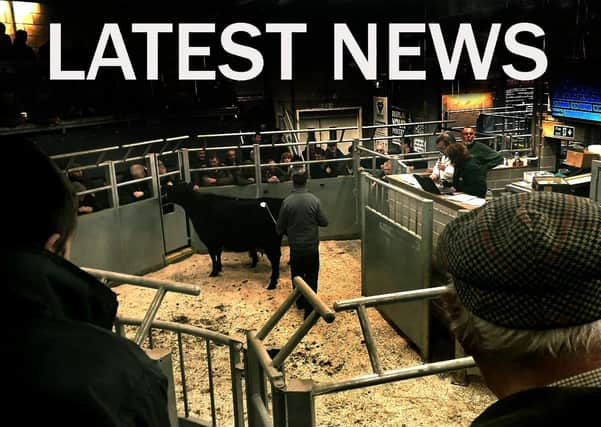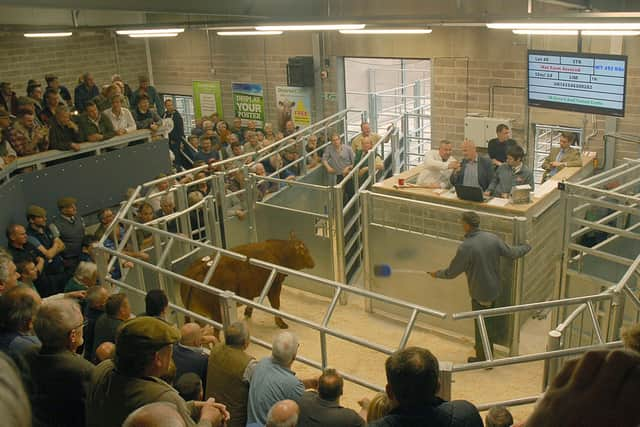Farmers voice concerns over post-Brexit agricultural policies


The government is bringing in an Agricultural Transition Plan, which will transform the way farmers are supported in the most significant change to farming and land management in 50 years.
Changes will come into force over the next seven years aimed at ensuring that by 2028, farmers in the Melton borough, and across England as a whole, can sustainably produce healthy food profitably without subsidy, whilst taking steps to improve the environment, improve animal health and welfare and reduce carbon emissions.
Advertisement
Hide AdAdvertisement
Hide AdFrom 2021, the government will begin to move away from the Basic Payment Scheme (BPS) - an annual grant adopted by EU countries to act as a cash safety net -


towards new policies that will be co-designed and tested with farmers, land managers and experts.
The money released will be used to fund new grants and schemes to boost farmer’s productivity and reward their environmental stewardship.
One example is the planned Environmental Land Management Scheme, which will incentivise sustainable farming practices, create habitats for nature recovery and establish new woodland to help tackle climate change.
Advertisement
Hide AdAdvertisement
Hide AdThe East Midlands branch of the National Farmers’ Union welcomes many of the post-Brextit proposals but says there are still a number of areas of concern.
NFU East Midlands regional director, Gordon Corner, told the Melton Times: “The rate at which direct support reductions will take place, which we understand will not be applied in other parts of the UK, leaves English farmers with significant questions.
“These payments have been a lifeline for many farmers especially when prices or growing conditions have been volatile and will be very difficult to replace in the first four years of this transition.
“Can ministers be sure that new schemes will be available at scale to deliver redirected BPS payments?”
Advertisement
Hide AdAdvertisement
Hide AdAnd he added: “Expecting farmers to run viable, high-cost regulatory farm businesses, continue to produce food and increase their environmental delivery, while phasing out existing support and without a complete replacement scheme for almost three years is high risk and a very big ask.
“There are also many uncertainties during this policy transition, not least new trading arrangements after we leave the EU, as well as the national recovery from Covid-19, and the global challenge of climate change.”
He said the change from the BPS system was particularly concerning for some farmers in the region: “Take livestock farmers for example, who we project will have lost between 60 per cent and 80 per cent of their income by 2024 as a result of these reductions.
“What changes will Defra make to ensure that the new Environmental Land Management schemes offer rewards that provide a genuine income for their businesses while maintaining food production?”
Advertisement
Hide AdAdvertisement
Hide AdBut Mr Corner said there were positives in the proposals for future agricultural policy, commenting: “Defra has embraced many of the industry’s ideas for sustainable farming and food production in designing this new agricultural policy for England.
“Farming is changing and we look forward to working with ministers and officials to co-create the schemes that will help farmers to improve productivity and animal welfare, encourage innovation and realise our ambition to produce increasingly climate-friendly food.”
Rutland and Melton MP Alicia Kearns has welcomed the new Agricultural Transition Plan as a framework which will address many of the failings of policies administered for the industry by the EU.
She said: “I’m determined to support Rutland and Melton farmers to reap the benefits our departure from the EU.
Advertisement
Hide AdAdvertisement
Hide Ad“Replacing overly prescriptive, top-down and one-size for all EU rules with policies that are catered to, and support, our British farming and environment is an important step.
“We’re cutting out the bureaucracy of the EU Agricultural scheme and enabling farmers to create schemes designed to their personal farm.
“Our farmers deserve immense recognition and support not just for their role in feeding our nation, but for their environmental stewardship and I’m delighted that this carefully phased plan and new approach will do exactly that.”